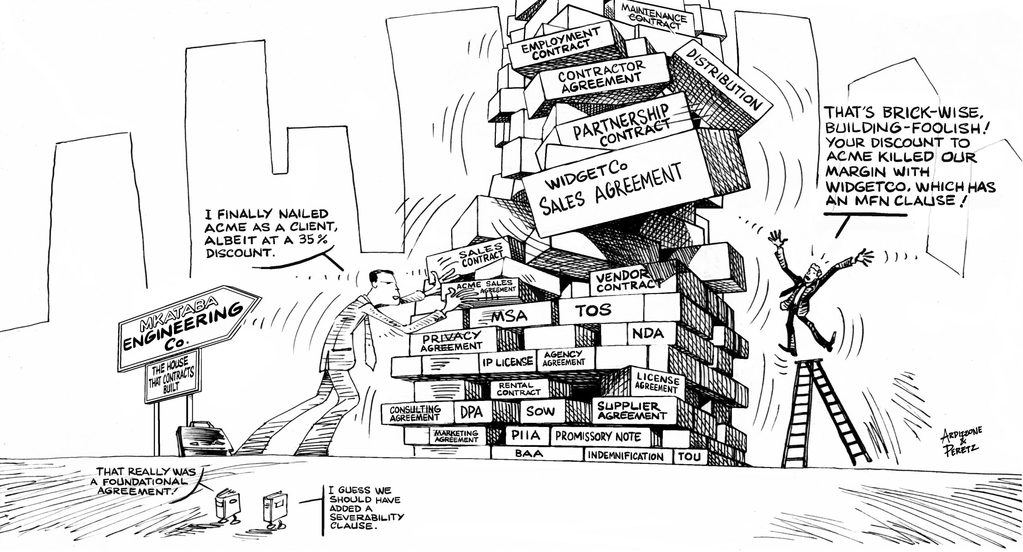- Home »
- Executory Contracts and Unexpired Leases
Executory Contracts and Unexpired Leases
The ABCs of ABCs, Business Bankruptcy, & Corporate Restructuring/Insolvency In the last two installments of this series, we introduced you to things a company should consider before deciding whether to file chapter 11, and a timeline for understanding how a “typical” chapter 11 case proceeds. In this quick little ditty, we want to make sure you understand four concepts that permeate every chapter 11 case except, perhaps, a prepack. 1. The Automatic Stay When a bankruptcy case is filed, an “automatic stay,” is triggered under Bankruptcy Code § 362. The automatic […]

What Distressed Businesses and Their Counsel Should Know About the Consolidated Appropriations Act 2021 and Its Effect on the Bankruptcy Code
What is the Consolidated Appropriations Act? Congress passed the Consolidated Appropriations Act, 2021 on December 21, 2020, and President Trump signed the massive act into law six days later, when it became effective. The act includes several changes to title 11 of the United States Code, which is usually called the “Bankruptcy Code,” and most changes sunset on either the first or second anniversary of the effective date of the act. Here are the changes you need to know, in the order they are presented in the act. Property That […]
How Liquidity Becomes the Kryptonite of a Distressed Company’s Capital Structure A company’s “capital structure” is the array of its liabilities and equity. It is often described by the debt to equity ratio, which is the amount of total debt divided by total equity. Capital structure commonly consists of three main components: working capital (also known as operating debt), financing debt, and equity. Working capital, or operating debt, includes accounts payable, accrued expenses, and other current liabilities usually due within one year. Financing debt includes senior bank financing, leases, and […]
The Overlooked (Giant) Asset Class: Executory Contracts In today’s world, one of the most important sources of assets and liabilities for a debtor is its executory contracts. Companies that were once heavy with assets and employees now have a much lighter balance sheet accompanied by many more business agreements enabling (or causing) them to utilize certain assets and services, exercise particular rights and options, and fulfill certain requirements. Financial engineering and more specialized capital markets have turned monolithic companies into asset-light entities reliant on leased space, equipment, and even leased […]
How Unique Issues in Healthcare Restructuring Set It Apart from Corporate Restructuring Over the past decade, arguably no industry experienced such dramatic regulatory change or consistent legislative uncertainty as healthcare. Today, continued efforts to repeal, defund, replace, or amend the Affordable Care Act—coupled with rising pharmaceutical costs, increased competition, massive capital investment expenses, etc.—virtually assure a challenging economic environment for healthcare companies for years to come. However, given the stakes involved—and the unfortunate fact that healthcare restructuring provides little time for “on the job training”—practitioners must enter such engagements […]

Force Majeure, MAC Clauses & COVID-19: A Court Speaks to Every Commercial Tenant in the United States
Why You Should Include a Force Majeure Clause in Lease Agreements The Northern District of Illinois delivered a victory last month for a tenant who could not operate its leased space as contemplated at the time it entered into the lease (and as it had been operating up until COVID-19), because continuing to operate normally would have violated an order issued by the Governor of the State of Illinois. The case in which this ruling was issued is In re Hitz Restaurant Group, 20 B 05012 (June 20, […]
Dealing With Distress For Fun & Profit – Installment #5 – A Peek Into Some Basic Chapter 11 Concepts
A written tour of business bankruptcy and its alternatives Subsequent installments in this series will cover the concepts touched upon here in more detail. We think it prudent, if not necessary, to at least throw some basic chapter 11 concepts on the table now, however, since they are so fundamental to any Chapter 11 case- regardless of which side of the table you sit on. The Automatic Stay Commencing a bankruptcy case triggers an “automatic stay,” which, with certain exceptions (carved out by §362(b)), operates as an injunction against actions […]




